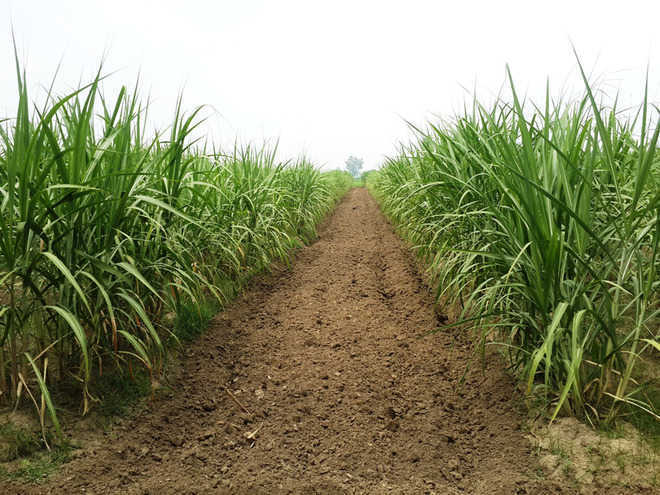Flooding in Maharashtra’s cane belt likely to hit sugar output
Shiv Kumar
Tribune News Service
Mumbai, August 19
Severe floods early this month in Kolhapur, Sangli and Satara, which account for the bulk of sugarcane production in Maharashtra, is expected to severely hurt the production of sugar this year.
According to estimates put out by the Maharashtra government’s agriculture department, more than 50,000 acres of land under sugarcane has been badly affected by flooding. “We are still estimating the damage caused by flooding, but initial estimates indicate that at least 50,000 acres of land have been badly affected,” an official from the Agriculture Department said.
Officials say sugarcane planted in the last six months would have completely rotted away following the rain, while the sugar yield would have dropped sharply in the more mature crops.
”Sugar output is likely to fall by 20 to 25 per cent this year,” an official from the Sugar Commissioner’s office said.
The state produced 43 lakh tonnes of sugar till end of the crushing season in June this year.
Officials however say, that consumers wouldn’t face any surge in the price of sugar since sugar mills in Maharashtra are sitting on a stockpile of 65 lakh tonnes, more than double the amount that can be absorbed in the domestic markets.
However sugarcane farmers have made decent returns in the past few years since they are heavily organised and mills have to compulsorily buy the cane brought to the factory gates. “Most of the sugarcane cultivators are small farmers with less than one acre of land. The government should give a compensation of at least Rs 1 lakh per acre towards crop loss,” said NCP leader Jayant Patil.
Kolhapur, Sangli and Satara are the hub of the sugar trade in Western Maharashtra with 53 sugar factories located here.
NCP chief Sharad Pawar is now demanding that the Maharashtra government grant a complete loan waiver to flood-affected farmers this year. “Apart from a complete loan waiver, the Maharashtra government should grant fresh crop loans to farmers so that they can start cultivation again,” Pawar told reporters in Pune last weekend.









